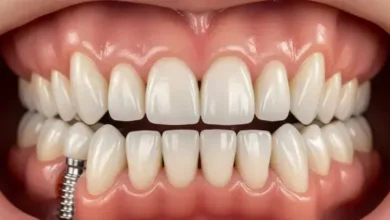the-uks-most-common-allergy-revealed-and-its-not-nuts-shellfish-or-dairy
The UK’s Most Common Allergy Revealed – and It’s Not Nuts, Shellfish or Dairy
When I think of food allergies, the usual suspects pop into my head—nuts, shellfish, dairy. I’ve always assumed they were the top culprits. But guess what? The most common allergy in the UK isn’t any of those. In fact, it might surprise you as much as it did me.
It’s actually pollen. Yep, plain old pollen.
Now before you roll your eyes, let me explain. Technically, pollen allergy is called hay fever or allergic rhinitis, and millions of people in the UK suffer from it. I used to think hay fever was just a seasonal nuisance—sneezing a bit in the spring and moving on. But I’ve learned that for many people, it’s way more than that. It can be debilitating, affecting concentration, mood, and even sleep.
And here’s what’s wild: According to recent NHS data and several allergy charities, around 1 in 4 people in the UK are affected by hay fever. That’s a huge number! I remember chatting with a friend who told me her hay fever starts in early March and doesn’t fully let up until September. That’s nearly half the year dealing with red eyes, sniffles, and relentless itching. It’s no joke.
Why is this happening?
From what I’ve read and heard from experts, climate change is playing a big role. Warmer temperatures mean longer pollen seasons and higher pollen counts. More people are also moving to urban areas, where pollution can intensify allergy symptoms. And just like that, a mild spring allergy turns into a full-blown, can’t-get-out-of-bed struggle.
If you’re reading this and nodding along, thinking “Yep, that’s me every summer,” trust me—you’re not alone. I started noticing my own sensitivity to pollen in my late twenties. One minute I was enjoying a walk in the park, and the next, I was sneezing uncontrollably and tearing up like I’d just watched a sad movie.
So what can we do about it?
First off, if you suspect you have a pollen allergy, go see your GP or get an allergy test. Don’t just tough it out. There are some really effective treatments now—antihistamines, nasal sprays, even allergy shots if things get severe.
I’ve also picked up a few simple hacks that make a huge difference: keeping windows shut during high pollen days, wearing sunglasses to block pollen from getting into my eyes, and showering right after coming inside. You’d be surprised how much pollen clings to clothes and hair.
It’s kind of empowering to know what’s actually going on with our bodies, right? Allergies aren’t always dramatic or life-threatening like a peanut reaction, but that doesn’t mean they don’t affect our quality of life.
So the next time someone mentions allergies, and you think of peanuts or dairy, remember—pollen is quietly wreaking havoc on millions of Brits every single year. And if you’re one of us, you’re not alone. I’m right there with you—armed with tissues, eye drops, and a determination not to let hay fever win.

